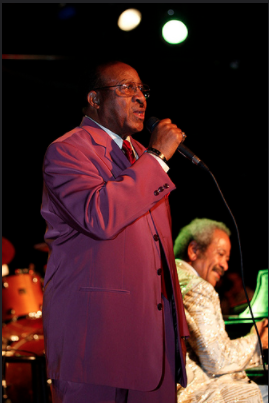Club Tiajuana
1209 SaratogaNew Orleans LA 70113
Club Tiajuana (spelled with three a’s) was a springboard for some of New Orleans’ top R&B talent in the 1950s. Like the Dew Drop Inn on the other end of Central City, the Tiajuana was a black-owned business that provided hotel and restaurant service for African American artists during segregation. Unlike the upscale Dew Drop, musician Al Reed told author John Broven:
[The Tiajuana] was the type of place where the down-outters could go. You might call it a cheap joint…This caused the place to be crowded most of the time…the best crowd you could ever play for. This crowd loved their music. But it was the poor type of people that really made the Club Tiajuana what it was.
Proprietor Oscar Bolden, Jr. featured a full show seven nights a week, including an emcee, a comedian, and shake dancers to go along with the music. Many of the city’s best rhythm and blues artists recalled an abiding sense of community at the club—it was a place musicians went to listen to each other. As Earl King put it, “The Tiajuana introduced me to a new circle of ideas and ambitions.”
It was seeing Guitar Slim perform here with a teenaged Huey “Piano” Smith in the early 50s that got King interested in playing guitar. To set up Slim at the Tiajuana, Bolden bought him a guitar and an extra long cable so he could hop offstage and play in the crowd. Slim and Smith started out playing intermissions here, but took over as the house band when Eddie Bo (then known as Spider Bocage) took his group on the road. Smith dropped out of high school to keep the gig.
Regarding other entertainers at the Tiajuana, Bolden’s daughter Gloria told Jonathan Foose,“There was a large group of female impersonators who would always stay at the hotel and dance for the shows. There was one girl we used to call Chicken Lady. She did a strip and ended up laying an egg!” Another such group, the Powder Box Revue, led by singer Bobby Marchan, came to town in 1953. Marchan caught on as an emcee at the Tiajuana the following year, and joined forces with Huey Smith in The Clowns in 1957. Together they recorded a string of hits including “Don’t You Just Know It,” and Marchan toured the country with the group before pursuing a solo career.
After Guitar Slim and Huey Smith’s residency, Robert Parker assumed the role of house bandleader at the Tiajuana. Best remembered for his 1965 hit “Barefootin’,” Parker was an in-demand saxophonist in the 50s, known for playing his horn on top of the bar at the Tiajuana, and flat on his back under the tables. The drummer in Parker’s band, Charles “Hungry” Williams, became one of the top session musicians in the city, playing on scores of hits cut at Cosimo Recording Studios.
Parker encouraged a fledgling guitar player at the Tiajuana named Ernest Kador to become a singer, landing him a regular gig here with a vocal group called the Blue Diamonds. As Ernie K-Doe, he ran talent shows at the club, though biographer Ben Sandmel noted that he kept the strongest competition, like Chris Kenner (later known for “Land of 1,000 Dances”) from taking the stage.
Talent scouts like Dave Bartholomew and label men like Johnny Vincent of Ace Records and Eddie Mesner of Aladdin Records were regulars at the Tiajuana, which had a reputation as a venue for emerging artists. (Among others, Little Richard held a regular gig here in 1953, two years before his big break.) Vincent recorded Eddie Bo in 1955 after seeing him at the club. He also signed Marchan to Ace after seeing him perform in drag, unaware that he was a man.
The bar here remained open into the 1980s. Jeff Hannusch reported that it was demolished in 1988 to make way for an approach to the Pontchartrain Expressway.
Videos
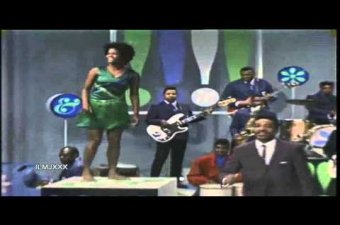
Robert Parker, who led the house band at Club Tiajuana for five years, performs his signature hit, "Barefootin'."
Video posted by ILMJXXX.
Robert Parker, who led the house band at Club Tiajuana for five years, performs his signature hit, "Barefootin'."
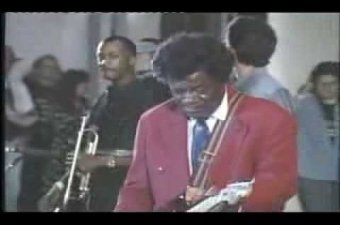
Earl King performing "The Things That I Used to Do," a song made famous by his mentor Guitar Slim, who he first met at Club Tiajuana.
Video posted by Joehilllouis.
Earl King performing "The Things That I Used to Do," a song made famous by his mentor Guitar Slim, who he first met at Club Tiajuana.
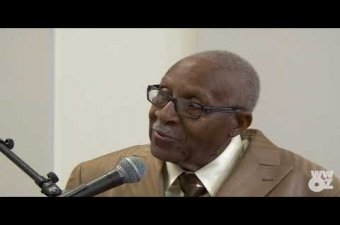
From 2018, an hour-long conversation with Robert Parker, including memories of his years as the house bandleader at Club Tiajuana.
Video posted by WWOZ.
From 2018, an hour-long conversation with Robert Parker, including memories of his years as the house bandleader at Club Tiajuana.
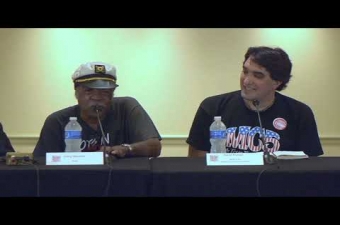
A panel discussion on Guitar Slim-- a regular performer at Club Tiajuana--from the 2011 Ponderosa Stomp Music History Conference.
Video posted by The Ponderosa Stomp.
A panel discussion on Guitar Slim-- a regular performer at Club Tiajuana--from the 2011 Ponderosa Stomp Music History Conference.
Images

















